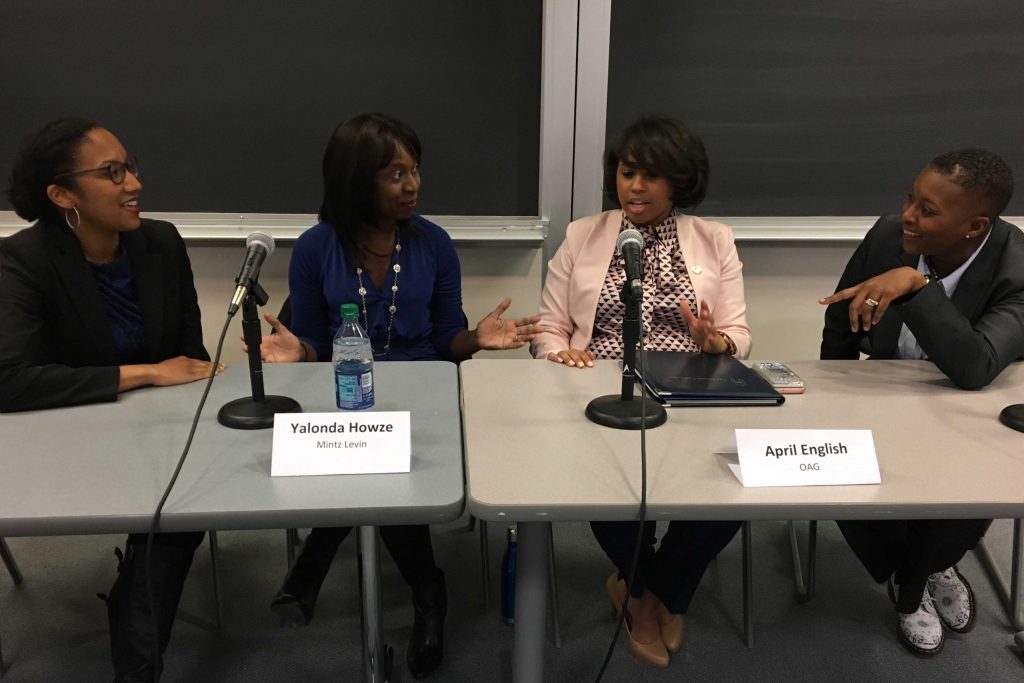Black women currently make up roughly 2 percent of law firm associates and less than 1 percent of law firm partners. The Boston College Black Law Students Association hosted a panel entitled “Black Women Trailblazers in the Law” on February 22 to address this critical underrepresentation level—and identify potential solutions—by highlighting stories of barriers and bias from four Boston-area lawyers.
Giselle Joffre, a partner at Foley Hoag; Yalonda Howze, a partner at Mintz Levin; April English, an Assistant Attorney General and executive at the Massachusetts Attorney General’s Office; and the Honorable Shannon Frison, a justice on the Massachusetts Superior Court, all joined to take questions from students and share their personal stories and advice about succeeding as black women in the legal profession.
The panelists began with the barriers black women face in the law. “It feels like you’re automatically starting at the bottom of the totem pole,” English said. “It takes more time and effort than your counterparts to prove that you belong in this profession.”
Howze cited the lack of peers and role models as she rose through the ranks in a firm. “There’s something unique about being a ‘superminority.’ I never worked with an African American partner, and certainly not a woman. Not only is there a lack of modeling, but you don’t know what the path is or what’s even required to pass each hurdle,” she said.
“The lack of representation creates internal tension when you feel the need to be perfect just to get the benefit of the doubt,” Joffre added. “I hadn’t even considered being a partner when I was in my fifth or sixth year at a firm. The lack of modeling forces you to recognize the internal tension, self-doubt, and inability to see a way forward that it creates.”
Justice Frison highlighted the added pressures that come with personal success and feeling a need to help the next generation rise. “In addition to being great at what you do, there’s a burden to convince people that diversity is good and bring others along. It’s no fun being the first or second black woman to do something if there’s nobody behind you,” she said.
Panelists also talked about the need to recognize and correct implicit biases in co-workers. “Everything is a teaching moment,” English stressed. “People are more open to it, and it’s empowering when you can teach [about bias] and when they get it.”
“We’re all affected by bias,” Justice Frison said. “You have to keep working, make sure your work is meritorious, and make a good faith effort to train everyone on bias.”
“The hardest challenge going forward is getting people to appreciate the need for diversity and the impact of diversity,” English added, “so that inclusivity isn’t just a feeling that you fit, but that you belong.”
Photo, left to right, Giselle Joffre, Yalonda Howze, April English, Shannon Frison.


